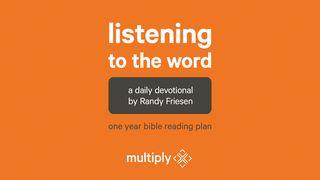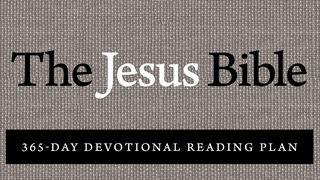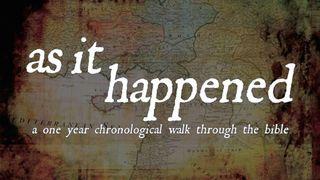Plan info
For The Love Of GodSample

IT IS APPROPRIATE THAT Hosea 13 should be read in conjunction with Psalm 137. Hosea 13 brings the prophet’s promises of judgment to their climax. God is going to destroy proud Samaria (Ephraim). Similar warnings were repeatedly thundered against Judah, but they showed no sign of repentance. In 587 B.C., God destroyed Jerusalem and the last great wave of people were transported into exile. Here in Psalm 137, the captives from that catastrophe voice their utter despair, and almost all of their focus is on the secondary agents—their captors, the Edomites, the people of Babylon. And both perspectives are valid and complementary.
Here I shall reflect on the four sections of Psalm 137.
(1) The first (Ps. 137:1-3) is so vivid it sounds like eyewitness recollection. A relief from the Assyrian palace of Sennacherib in Nineveh pictures three prisoners of war playing their lyres while a soldier marches them along; doubtless this also happened in Babylon. The “rivers of Babylon” was a system of canals connected with the Tigris and Euphrates river systems. The “harps” (lyres) were instruments of joy. In the symbolic language of Revelation 5, when the lion who is also the lamb takes the scroll from the right hand of the Almighty, signaling that he is worthy to open the scroll and bring about all of God’s purposes in blessing and judgment, all the “harps” break out; it is a moment of ineffable joy, the opposite of this paragraph.
(2) But the exiles refuse to sing (Ps. 137:4-6). All of the associations of the songs of the Lord are tied to Jerusalem and the temple. For them, their staunch refusal, even to their tormenting captors, was a sign not only of pathos and heartbreak
(v. 4) but also of passion and fidelity (vv. 5-6).
(3) The Edomites had obviously delighted in the destruction of Jerusalem and perhaps helped it along. On this point the prophet Ezekiel has more to say (Ezek. 35; see meditation for October 2). God hates smugness and a vengeful spirit. The judgment on Jerusalem came, ultimately, from God—but he would also judge those who delighted in and contributed to Jerusalem’s fall. One of the ugliest recent evidences of that smug vengefulness within the ranks of professing evangelicalism was the slogan “no tears for queers” after a young gay man had been beaten to death.
(4) At the end of a siege, victorious soldiers might pick up small children by their ankles and kill them by bashing their heads against a wall. What such barbarism demands, strictly speaking, for justice to prevail, is similar suffering. These white-hot lines are not cool policy statements, but the searing cries of moral indignation. We must hear the anguish, before we also hear God insisting that vengeance is his (Rom. 12:19).
About this Plan

A daily devotional for discovering the riches of God's word: For the Love of God is a daily devotional designed to walk a person through the Bible in a year while assisting the reader in discovering the riches of God's W...
More
We would like to thank The Gospel Coalition for providing this plan. For more information, please visit: thegospelcoalition.org









